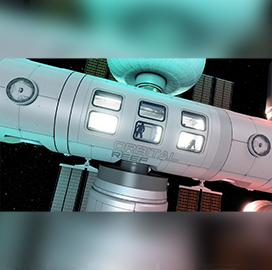Navigation system
NASA To Test LN-1 Geolocation, Navigation Radio Beacon in Mid-February
NASA will deploy the Lunar Node-1 experiment when it launches the second Commercial Lunar Payload Service in mid-February.
LN-1 is a cube satellite-sized radio beacon that supports precise geolocation and navigation observation for landers, space infrastructure and astronauts. It can also be used to aid orbital maneuvers and support spacecraft landing on the moon.
LN-1 is designed to be part of a broader navigation infrastructure using a satellite constellation operating in lunar orbit, which NASA will procure through the Lunar Communications Relay and Navigation Systems project. The beacon will join five other payloads aboard Intuitive Machine’s Nova-C lander, destined for the Malapert A lunar crater, NASA said.
Another payload that will be on board Nova-C is NASA’s Navigation Doppler Lidar, developed by the Langley Research Center to support spacecraft landing on extraterrestrial surfaces. NDL uses light detection and ranging technology to improve spacecraft landing accuracy compared to radar-based landing. NASA will demonstrate NDL’s capabilities in the lunar environment.
Nova-C will be launched into space aboard a SpaceX Falcon 9 rocket, which will take off from Cape Canaveral Space Force Station.

Category: Space




